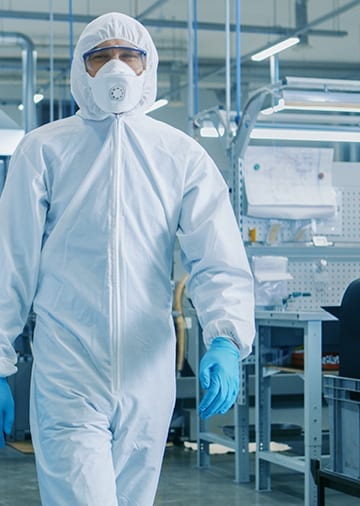How clean is the air in your building?
Clean air is a subject on the tip of our tongues since the Covid-19 pandemic. Apart from viruses in the air, there are many other pollutants in the air that can adversely affect our health and shorten our lives, including:
- Fine particulate matter: Particles are small enough to enter the bloodstream and be circulated around our bodies and organs, seriously affecting health. Particles include pollen, sea spray, industrial processes, domestic combustion, manufacturing, wood burning, vehicle and emissions.
- Ammonia: Ammonia alone, exists for hours, but when mixed with other gases, can last for days in the atmosphere. Most ammonia emissions are emitted by the agricultural sector, via spreading of manures, slurries and fertilisers, however some ammonia is emitted by waste.
- Nitrogen oxides: Reacts with other gases in the atmosphere to form nitrogen dioxide (NO2) which is dangerous to health. Inflammation of airways can be caused even after short exposure to these gases. These gasses are mainly emitted from transport, energy industries and manufacturing and construction.
- Sulphur dioxide: direct exposure is linked with asthma and bronchitis – this was the chemical that caused thousands of deaths during the London Smog. This chemical is created mainly from energy industries and also manufacturing and domestic combustion.
- Non-methane Volatile Organic Compounds (VOCs): These are formed from different chemicals, however, they display similar characteristics, especially when exposed to sunlight (indoors) and are grouped together for this reason. VOCs can also change to create formaldehyde through cooking, heating, smoking or candle burning, The formaldehyde VOC can be emitted from furniture polish, furniture finishes, laminate flooring, kitchen cabinets and wood panels!
- Radon Gas: All buildings contain radon, however the level is affected depending on where in the country you live or work. Use the interactive map at UKRadon.org to see if your area is affected.
(Source: Gov.uk and UKRadon.org)
Below is a list of considerations in relation to Covid and Clean Air Strategies.
- Failed filtration
- Running thermal wheels as this presents COVID risk
- Smarter CO2/Fresh air strategies
- Car park CO controls
- Battery charging releases Hydrogen into the air (explosive limits are 4.1 to 72 percent hydrogen in air)
The World Health Organisation (WHO) says 3.8 million premature deaths annually from diseases such as strokes, ischaemic heart disease, chronic obstructive pulmonary disease, and lung cancer are attributed to exposure to household air pollution. The UK Government states in its Clean Air Strategy that UK air quality is the largest environmental risk in the UK, even short-term exposure to pollution can be detrimental to our health. It is also stating that it wants UK businesses to be the leaders in clean air.
BOSS CONTROLS can help the UK to achieve that. We are here to help you breathe life into your building, so you can protect your employees, customers, friends and families. We are experts in cleaning and improving the quality of the air in buildings, and we work with the education sector (schools, colleges, and universities), offices, retail (independents and retailers) and healthcare (private and NHS).
Are you interested in upgrading the quality of your air and improving the health of your building’s occupants? Contact us for a free quote.
Get in touch with your BEMS/BMS partner, BOSS CONTROLS
If you have any questions about BEMS/BMS or energy management, Please don’t hesitate to send us a message
BOSS CONTROLS works in the following sectors

Education sector
Optimising temperature for wellbeing and comfort of students and staff. Read more >

Healthcare
Helping the NHS and private sector to reduce their carbon footprint and reduce costs. Read more >

Museums and heritage
Protecting and futureproofing heritage buildings and valuable artifacts. Read more >

Entertainment
Theatres, casinos, leisure centres … Keep customers comfy and loyal. Read more >

Retail / shopping malls
Energy reduction in shopping malls and retail. Keeping shoppers comfortable. Read more >

Clean rooms, manufacturing, industrial
Energy reduction in clean rooms, manufacturing, industrial. Read more >

